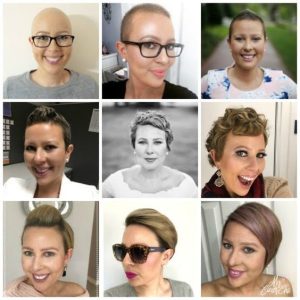Losing hair during chemotherapy is one of the most feared side effects for many people. It’s more than just about appearance—hair loss can feel like a visible reminder of your battle with cancer. But let’s break it down, understand why this happens, and how to deal with it if you’re going through it.
Why Does Chemotherapy Cause Hair Loss?
Chemotherapy is a powerful treatment that targets fast-growing cells. Since cancer cells grow rapidly, chemo aims to kill those cells. But, here’s the catch—other cells in your body also grow quickly, including those in your hair follicles. Unfortunately, chemo can’t differentiate between cancer cells and healthy cells, which is why it affects your hair too.
The good news? Hair loss from chemo is almost always temporary. Most people notice their hair starting to fall out about 1-3 weeks after treatment begins, and it might fall out in clumps or gradually thin out.
Does Everyone Lose Their Hair?
Not everyone who gets chemo will lose their hair. It depends on the type of chemotherapy drugs you’re receiving. Some drugs cause more hair loss than others, and the dosage also plays a role. For example, drugs like doxorubicin and paclitaxel are more likely to cause hair loss, while others might not.
It’s a good idea to ask your doctor what to expect based on your specific treatment plan.
What Can You Do About It?
While there’s no surefire way to prevent hair loss during chemotherapy, there are some things you can try to lessen the blow or prepare for it:
– Scalp cooling caps: These are cold caps you wear during chemotherapy sessions. They cool your scalp and may reduce the amount of chemo that reaches your hair follicles, potentially preventing or reducing hair loss.
– Gentle hair care: If you notice thinning, be extra gentle with your hair. Use a soft brush, avoid hot styling tools, and try mild, fragrance-free shampoos.
– Shave it off: Some people prefer to take control by shaving their heads before hair loss starts. It can be empowering, rather than waiting for the shedding to begin.
– Wigs, scarves, and hats: If you do lose your hair, many people find comfort in wearing wigs or scarves. Today, there are endless stylish options that feel and look natural, if that’s something you want to explore.
When Does Hair Grow Back?

Once your treatment is over, your hair will start growing back, usually within 1-3 months. In some cases, the new hair might be a little different in color or texture at first (you might have curly hair if you had straight hair before!), but over time it will return to normal.

